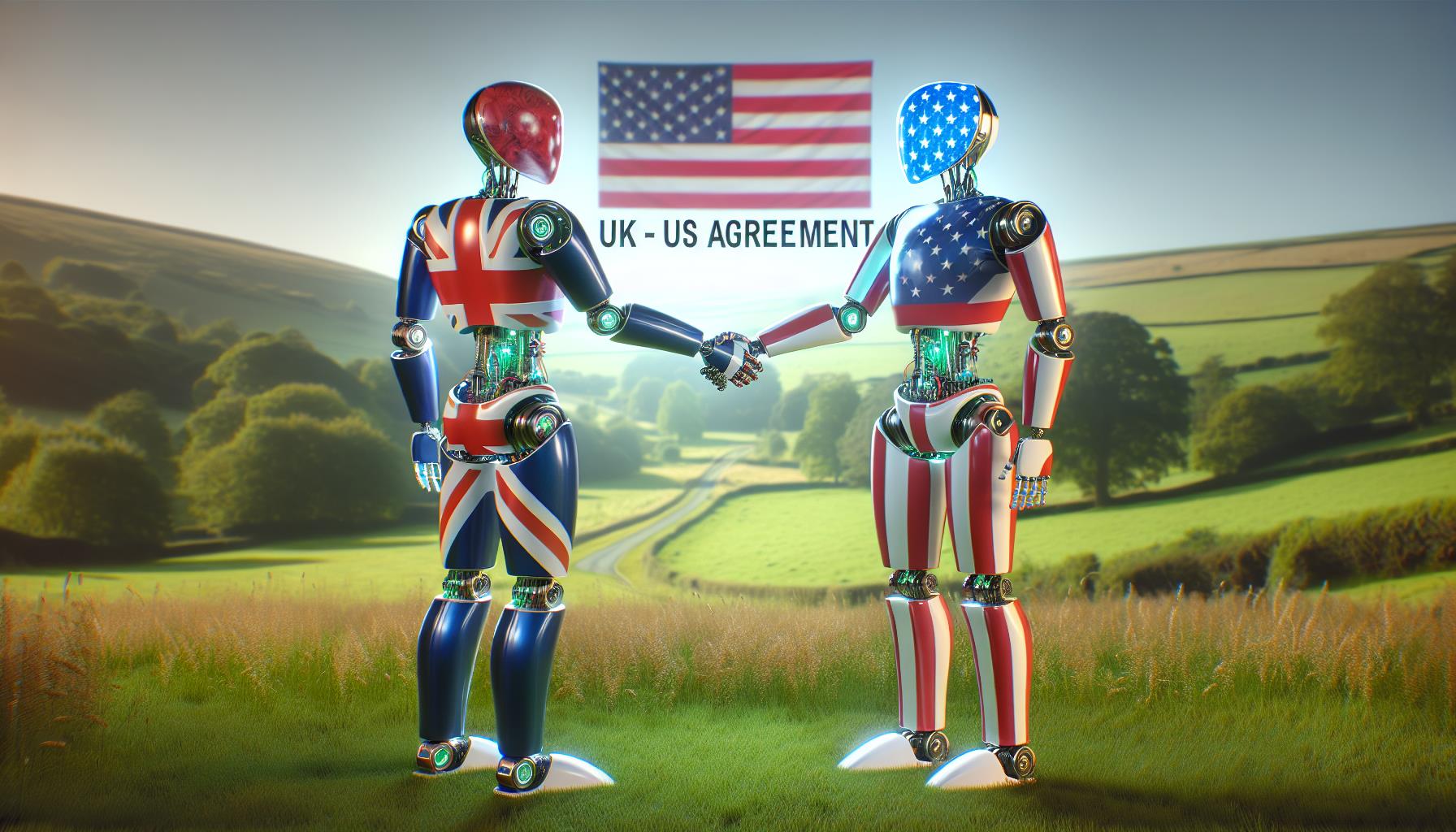In an era where technological innovation serves as both the battleground and the instrument for global dominance, the United Kingdom and the United States have embarked on a momentous journey. This initiative, aimed at fortifying their positions in the rapidly evolving landscape of Artificial Intelligence (AI), marks a significant leap forward. The bilateral AI agreement between these two nations stands not just as a testament to their enduring alliance but also as a strategic move to navigate the complexities of modern technological advancements.
The roots of this groundbreaking agreement lie in the shared recognition of AI’s transformative potential across various sectors, from healthcare and education to defense and climate change. Both nations have long been pioneers in technological innovation, and this agreement is a reflection of their commitment to leading the charge in shaping the future of AI. It signifies a mutual understanding of the need for collaborative efforts to harness the benefits of AI while addressing the ethical, legal, and societal challenges it poses.
Parallel Advancements: UN and EU Regulatory Frameworks
The announcement of the UK-US AI agreement comes at a time when the international community is keenly focused on establishing regulatory frameworks for AI. The United Nations (UN) and the European Union (EU) have been at the forefront of these discussions, advocating for regulations that ensure AI’s development and deployment are ethical, transparent, and beneficial to humanity. This global movement towards AI regulation sets the backdrop against which the UK and US have decided to unite their efforts.
By aligning their technological policies with the ongoing regulatory advancements at the UN and EU levels, the UK and US aim to lead by example. This bilateral agreement is envisioned as a dynamic and adaptable framework that not only supports the rapid pace of AI innovation but also incorporates robust safeguards. The alignment with broader regulatory initiatives underscores the commitment of both nations to responsible stewardship of AI technologies, ensuring they contribute positively to global societal challenges.
Core Objectives and Collaborative Ventures
The UK-US AI agreement is built on a foundation of shared goals and mutual benefits. At its core, the agreement aims to facilitate open exchange of information, joint research initiatives, and the development of interoperable standards for AI technologies. This collaborative approach is designed to accelerate innovation, promote economic growth, and enhance national security, all while adhering to ethical AI practices.
A key aspect of the agreement involves investment in joint research projects that tackle some of the most pressing challenges in AI, such as algorithmic bias, data privacy, and the future of work. These projects are expected to yield cutting-edge solutions that can be scaled globally, benefiting not just the UK and US but the international community at large. Additionally, the agreement places a strong emphasis on education and workforce development, aiming to equip individuals with the skills necessary to thrive in an AI-driven future.
Addressing Global Challenges Through AI
The potential of AI to address global challenges such as climate change, pandemics, and humanitarian crises is immense. The UK-US bilateral agreement recognizes this potential and seeks to leverage AI technologies in tackling these issues head-on. Through joint initiatives, both nations aim to develop AI solutions that can enhance disaster response, improve public health monitoring, and contribute to sustainable development goals.
This collaborative effort extends beyond the immediate technological advancements, embodying a vision for a future where AI acts as a force for good. The agreement envisions the development of AI applications that not only drive economic prosperity but also enhance the quality of life globally, fostering a more equitable and sustainable world.
Challenges and Ethical Considerations
Despite the promising outlook, the path to realizing the full potential of the UK-US AI agreement is fraught with challenges. Key among these is the need to navigate the ethical and societal implications of AI development. Both nations are committed to an AI governance framework that promotes transparency, accountability, and public trust. This includes establishing mechanisms for ethical oversight, public engagement, and the protection of individual rights and privacy.
Another challenge lies in the global nature of technology and the need for international cooperation beyond the UK and US. While the bilateral agreement sets a strong foundation, its success will ultimately depend on broader global collaboration. Engaging with other nations, international organizations, and the private sector will be crucial in shaping a global AI ecosystem that is inclusive, ethical, and beneficial to all.
The Road Ahead
The UK-US bilateral AI agreement marks the beginning of a new chapter in the annals of technological collaboration. As both nations embark on this journey, the focus will be on translating the high-level objectives of the agreement into tangible outcomes. This will require sustained commitment, innovative thinking, and agile policy-making to adapt to the rapidly changing technological landscape.
As the world watches, the success of this agreement could herald a new era of international technological cooperation, setting the stage for a future where AI technologies are harnessed responsibly to address some of humanity’s most pressing challenges. The UK and US, through their pioneering spirit and shared vision, have the opportunity to lead this global effort, forging a path towards a prosperous, sustainable, and inclusive future powered by AI.
